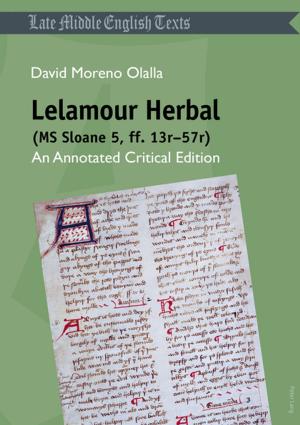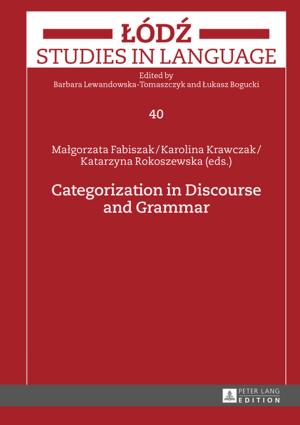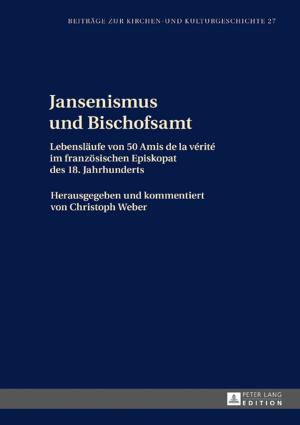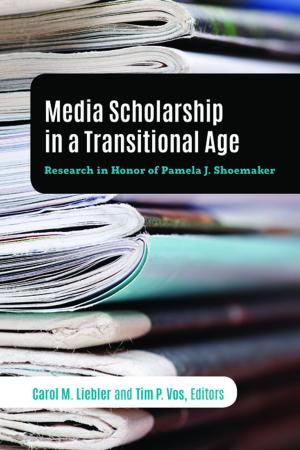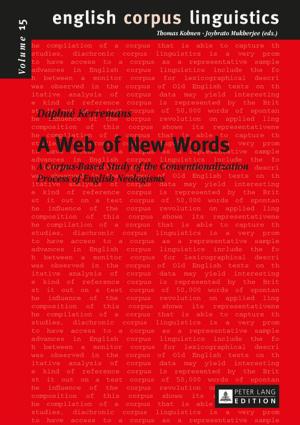Entre archéologie et histoire : dialogues sur divers peuples de lItalie préromaine
E pluribus unum?
Nonfiction, Social & Cultural Studies, Social Science, Archaeology, Reference & Language, Language Arts, History| Author: | ISBN: | 9783035199130 | |
| Publisher: | Peter Lang | Publication: | November 25, 2014 |
| Imprint: | Peter Lang AG, Internationaler Verlag der Wissenschaften | Language: | English |
| Author: | |
| ISBN: | 9783035199130 |
| Publisher: | Peter Lang |
| Publication: | November 25, 2014 |
| Imprint: | Peter Lang AG, Internationaler Verlag der Wissenschaften |
| Language: | English |
Le projet « E pluribus unum » ? L’Italie, de la diversité préromaine à l’unité augustéenne entend faire le tour des populations antiques de l’Italie centrale, illustrant de quelle manière celles-ci ont contribué à forger l’« identité inachevée » de l’Italie romaine. Chaque volume est le résultat d’une rencontre scientifique dédiée à une période précise et aux problématiques qui lui sont propres.
Le premier volume, consacré aux périodes qui ont précédé la conquête romaine, met ainsi en scène Sabins, Ombriens, Picéniens, Samnites, Campaniens, Lucaniens, Volsques, Falisques, Capénates et Latins au travers des thématiques suivantes : l’émergence des divers ethnè dans les sources écrites, les spécificités culturelles perceptibles pour chacun d’entre eux par le biais de l’archéologie, les liens entre ethnos et territoire et les relations avec les ethnè voisins.
Dans chaque cas, une démarche transdisciplinaire a été confiée à un binôme de chercheurs, l’une de formation plutôt archéologique, l’autre plus historique. L’ensemble de l’équipe, relevant de traditions académiques différentes, a ainsi cherché à vérifier dans quelle mesure ces « feux croisés » aboutissaient à des conclusions analogues ou mettaient au contraire en évidence une série d’images contrastées.
Il progetto «E pluribus unum»? L’Italia dalla diversità preromana all’unità augustea intende fornire in tre volumi un quadro sulle popolazioni dell’Italia centrale antica e sul loro contributo alla formazione dell’«identità incompiuta» della Penisola Italiana in età romana. Ogni volume è frutto di un incontro di studi dedicato ad un preciso periodo di tempo e alle sue problematiche.
Il primo volume, incentrato sulla fase precedente alla conquista romana della penisola, prende in considerazione una selezione di popoli: Sabini, Umbri, Piceni, Sanniti, Campani, Lucani, Volsci, Falisci, Capenati e Latini. Per ciascuno di essi vengono affrontate nel dettaglio le seguenti tematiche: l’emergere dell’ethnos nelle fonti storiche e la possibilità di riconoscere una specificità culturale nelle fonti archeologiche, il legame dell’ethnos con il territorio e i rapporti con le realtà confinanti.
L’analisi, affidata a una coppia di studiosi, uno di formazione più archeologica ed uno più storico, espressioni di diverse tradizioni accademiche europee, ha lo scopo di verificare se questo «fuoco incrociato» porta a conclusioni analoghe o finisce per mettere in risalto una diversa immagine a seconda della prospettiva adottata.
The project «E pluribus unum»? Italy from the pre-Roman fragmentation to the Augustan unity aims to give (thanks to a set of three volumes) a picture of the peoples of ancient pre-Roman central Italy and of the contribution made by them to the formation of the «unaccomplished identity» of the Italian peninsula during the late-Republic and Empire. Each book is the outcome of a conference, dedicated to a specific chronological period and to its problems.
The first volume, centred on the phase preceding the Roman conquest of the peninsula, takes into consideration a selection of peoples: Sabini, Umbri, Piceni, Samnites, Campani, Lucani, Volsci, Falisci, Capenates and Latini. For each of them the following themes are tackled in detail: the emergence of the ethnos in ancient written sources and the possibility of recognizing a cultural specificity in the archaeological record, the link between the ethnos and the territory, and the relationship with the neighbouring ethne.
The peoples are analysed individually each by a couple of scholars, highlighting
Le projet « E pluribus unum » ? L’Italie, de la diversité préromaine à l’unité augustéenne entend faire le tour des populations antiques de l’Italie centrale, illustrant de quelle manière celles-ci ont contribué à forger l’« identité inachevée » de l’Italie romaine. Chaque volume est le résultat d’une rencontre scientifique dédiée à une période précise et aux problématiques qui lui sont propres.
Le premier volume, consacré aux périodes qui ont précédé la conquête romaine, met ainsi en scène Sabins, Ombriens, Picéniens, Samnites, Campaniens, Lucaniens, Volsques, Falisques, Capénates et Latins au travers des thématiques suivantes : l’émergence des divers ethnè dans les sources écrites, les spécificités culturelles perceptibles pour chacun d’entre eux par le biais de l’archéologie, les liens entre ethnos et territoire et les relations avec les ethnè voisins.
Dans chaque cas, une démarche transdisciplinaire a été confiée à un binôme de chercheurs, l’une de formation plutôt archéologique, l’autre plus historique. L’ensemble de l’équipe, relevant de traditions académiques différentes, a ainsi cherché à vérifier dans quelle mesure ces « feux croisés » aboutissaient à des conclusions analogues ou mettaient au contraire en évidence une série d’images contrastées.
Il progetto «E pluribus unum»? L’Italia dalla diversità preromana all’unità augustea intende fornire in tre volumi un quadro sulle popolazioni dell’Italia centrale antica e sul loro contributo alla formazione dell’«identità incompiuta» della Penisola Italiana in età romana. Ogni volume è frutto di un incontro di studi dedicato ad un preciso periodo di tempo e alle sue problematiche.
Il primo volume, incentrato sulla fase precedente alla conquista romana della penisola, prende in considerazione una selezione di popoli: Sabini, Umbri, Piceni, Sanniti, Campani, Lucani, Volsci, Falisci, Capenati e Latini. Per ciascuno di essi vengono affrontate nel dettaglio le seguenti tematiche: l’emergere dell’ethnos nelle fonti storiche e la possibilità di riconoscere una specificità culturale nelle fonti archeologiche, il legame dell’ethnos con il territorio e i rapporti con le realtà confinanti.
L’analisi, affidata a una coppia di studiosi, uno di formazione più archeologica ed uno più storico, espressioni di diverse tradizioni accademiche europee, ha lo scopo di verificare se questo «fuoco incrociato» porta a conclusioni analoghe o finisce per mettere in risalto una diversa immagine a seconda della prospettiva adottata.
The project «E pluribus unum»? Italy from the pre-Roman fragmentation to the Augustan unity aims to give (thanks to a set of three volumes) a picture of the peoples of ancient pre-Roman central Italy and of the contribution made by them to the formation of the «unaccomplished identity» of the Italian peninsula during the late-Republic and Empire. Each book is the outcome of a conference, dedicated to a specific chronological period and to its problems.
The first volume, centred on the phase preceding the Roman conquest of the peninsula, takes into consideration a selection of peoples: Sabini, Umbri, Piceni, Samnites, Campani, Lucani, Volsci, Falisci, Capenates and Latini. For each of them the following themes are tackled in detail: the emergence of the ethnos in ancient written sources and the possibility of recognizing a cultural specificity in the archaeological record, the link between the ethnos and the territory, and the relationship with the neighbouring ethne.
The peoples are analysed individually each by a couple of scholars, highlighting




